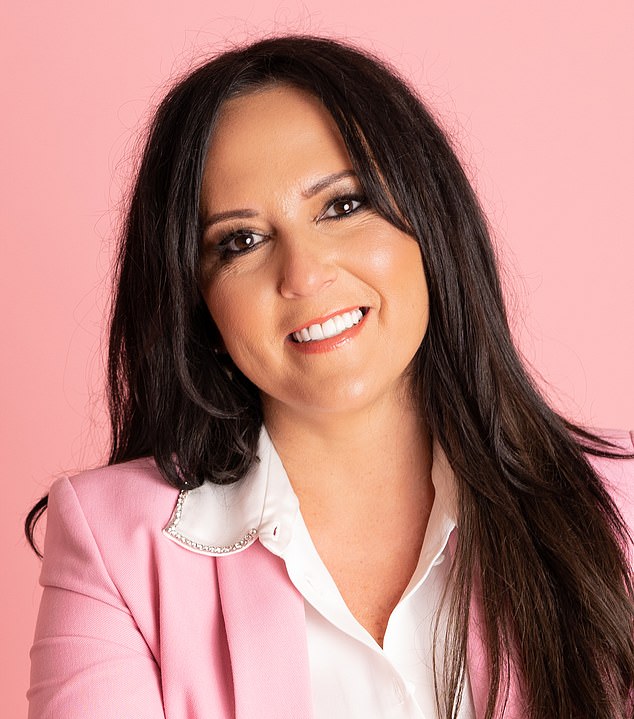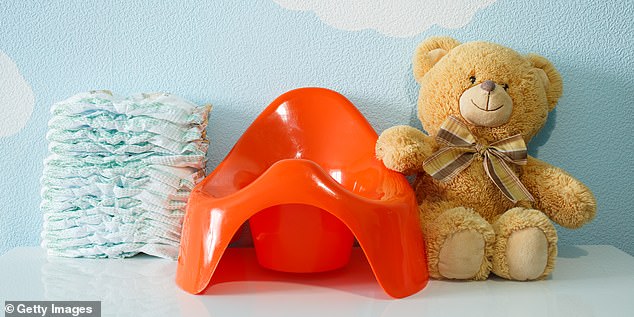Sitting on the carpet with his classmates, little Lewis noticed a puddle growing around his butt. Burning with embarrassment, he realized – too late – that he needed to go to the bathroom. Four years old and freshly out of diapers, he was still learning the telltale signs.
The truth was only revealed when his mother came to pick him up three hours later to find him soggy and on the verge of tears. A week later, he was so afraid of having another “accident” at school that he insisted on wearing pull-ups, joining a growing number of children wearing diapers to class.
While most children are able to learn to use the toilet by the age of three, recent research has shown that 25 percent of them join the reception class at the age of four without this basic skill.
And the reaction against their parents is growing. According to a survey by early years charity Kindred², up to 90% of respondents believe children should not be allowed to start school until they are completely potty trained.
There is currently a fierce debate over who is responsible for their education: teachers or parents? The survey of 1,000 parents of reception-aged children found that only 50% believed they were solely responsible for their child’s potty training – and one in five parents thinks her children don’t need to wear diapers before starting primary school.

While most children are able to learn to use the toilet by the age of three, recent research has shown that 25 percent of them join the reception class at the age of four without this basic skill.
While I agree that it is not the job of teachers to potty train their students, I think they should play a role. It’s their job to be vigilant when young children need to go to the bathroom — and to make toileting accessible and enjoyable. They can’t completely wash their hands of it.
Many teachers are furious to see children arriving in diapers. But it’s not that parents are lazy or complacent; these teachers should talk to the hundreds of thousands of guilt-ridden parents who contact me every year.
As the UK’s leading potty training expert with 25 years’ experience, I hear from over 2,000 concerned parents every week. And I’ve worked with everyone from makeup guru Charlotte Tilbury to presenter Ferne McCann to help their children learn to potty train.
The oldest child I ever helped was a deeply embarrassed and withdrawn eight-year-old. In extreme cases, I move in with parents for a full week to potty train their children.
In these cases, I am there every day from 9 a.m. to 5 p.m., getting to know the child and gently introducing them to the idea of sitting on the potty or toilet – whichever they prefer – with cards visuals showing him exactly what he needs to do. I offer rewards and encouragement. The idea is to make exercise fun and challenging, not embarrassing.
It is worrying that the problem of potty training is increasing exponentially. Children who start school in September have seen their development delayed. Many born during the pandemic have stayed home with their parents working on their laptops instead of socializing and learning from their peers.
Add to that the fact that many parents are working harder than ever and are often too exhausted to dedicate the time and patience essential to potty training and we have all the makings of a crisis.


While I agree that it is not the job of teachers to potty train their students, I think they should play a role. It’s their job to be vigilant when young children need to go to the toilet, says Amanda Jenner
As such, I strongly believe that parents, caregivers and teachers must work together. That’s why I met with David Johnston, Minister for Children, Families and Welfare last month, in a bid to convince the Government to implement a proper plan that everyone can follow.
After a trial in 100 schools later this year, I hope the Department for Education will start by ensuring every parent receives a simple guide. This will help them to potty train their children no later than the summer holidays before they start school.
Some might argue that parents have managed to do without this advice for generations, but we live in unprecedented times. The ramifications of the pandemic, a lack of health care visitors who traditionally offered this advice, and overworked parents mean that too many children are simply not receiving regular potty training.
Moms tell me they take Fridays off so they can potty train their child over a long weekend. But come Monday, the child is back in daycare, or looked after by a nanny or grandparents and faces a completely different routine. It’s not going to happen.
Or parents think they will drag their child on vacation abroad when everyone else is supposed to be more relaxed. This is useless. Children need consistency in their family environment.
Parents should be present to spot the signs that the child is ready to transition to pants. Children will become noticeably uncomfortable in a dirty diaper, stay dry longer, and possibly hide when they poop or pee because they are aware something is happening.
Now is the time to encourage your child to choose a brand new potty and “big girl” or “big boy” pants. Invest in lots of chocolate buttons or star stickers and be ready to treat your child to praise and rewards.
But while no parent should expect their child’s teacher to change diapers regularly, schools should accept that they play a vital role.
Teachers need to make children feel confident asking to use the toilet and comfortable when they get there. Too many school toilets are smelly eyesores. I recently visited 50 different schools and found that everything from the running faucets to the lights were not working.
Anxious children should be encouraged to have a “bathroom buddy” so they can go in pairs. Teachers should look for signs, such as a child moving or wiggling their toes. If they refuse to eat, they may feel full because they are reluctant to go to the bathroom.


It is worrying that the problem of potty training is increasing exponentially. Children who start school in September have had their development delayed
No child should be shamed if they have an accident. Recently, I spoke to the mother of a little boy who refused to go to school after his classmates called him a “stinky boy” – simply because he was too afraid to lift his hand in class and he ended up getting dirty.
If our teachers don’t help children go to the bathroom when they need to, the long-term consequences can be profound. Pediatric doctors are seeing an increase in young children with urinary tract infections caused by not emptying their bladders often enough. This can lead to lifelong incontinence problems. Others become seriously constipated.
Children are missing out on education because they refuse to go to school or find excuses not to go.
A mother was called to her five-year-old daughter’s school at least once a week because she had a stomach ache. In fact, she was too embarrassed to go to the bathroom.
The truth is that we have wasted enough time arguing over who is to blame. Meanwhile, our children are suffering. If we do not act urgently, an entire generation of children will suffer.
As Tessa Cunningham said
Amanda Jenner gives advice on Instagram @expertamandajenner and pottytrainingacademy.co.uk. Her book Potty Training Magic (Vermilion, £7.99, ) is out now
